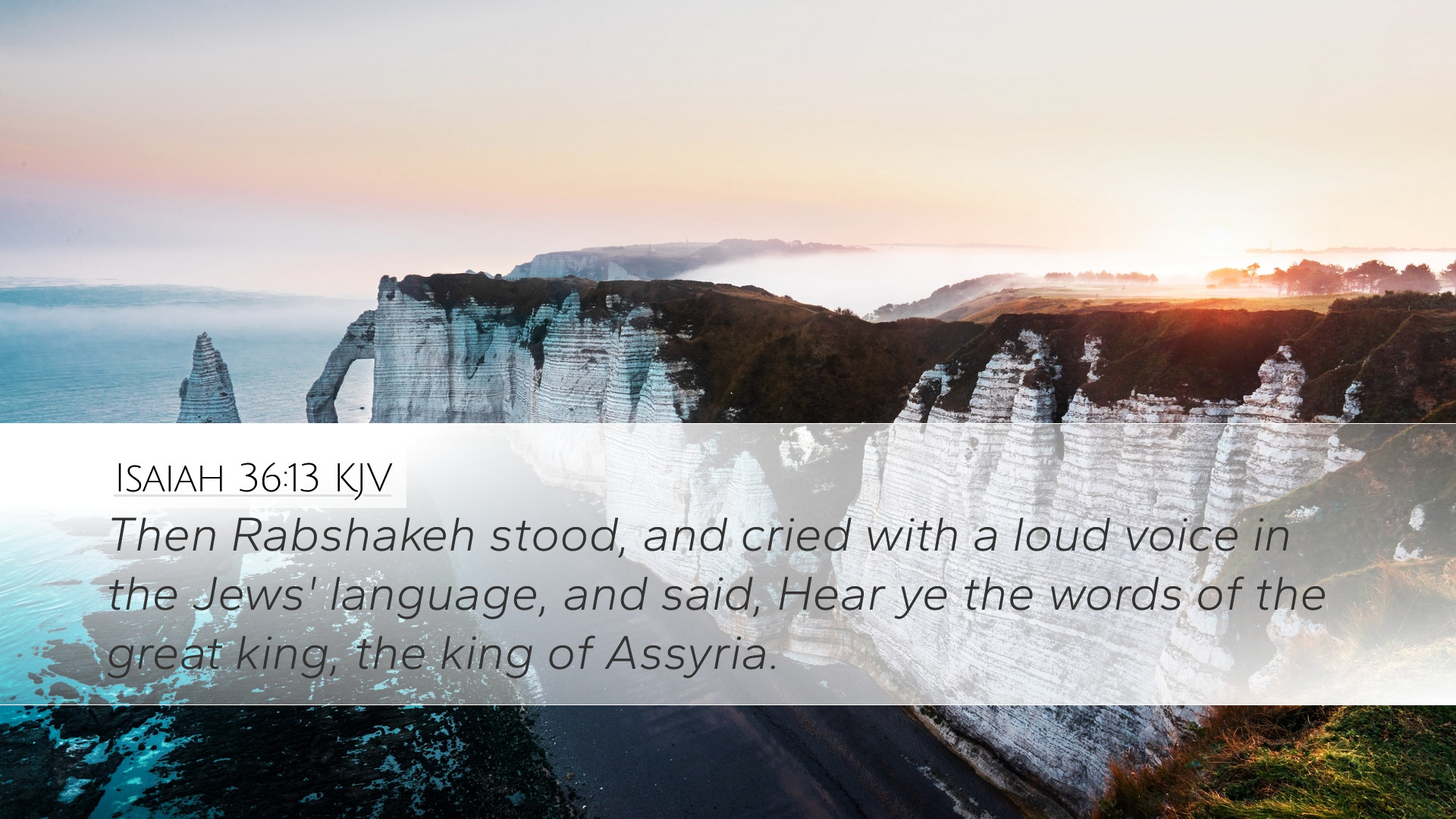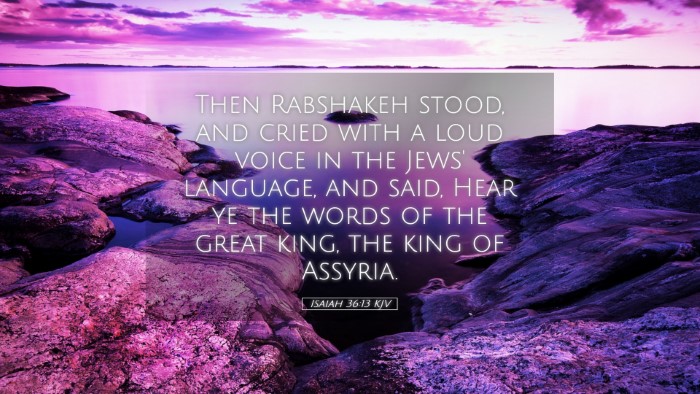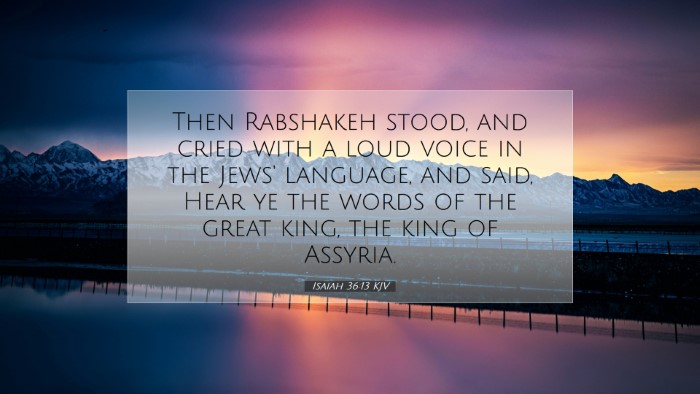Commentary on Isaiah 36:13
Isaiah 36:13 states:
"Then Rabshakeh stood and cried with a loud voice in the Jews’ language, and said, Hear ye the words of the great king, the king of Assyria." (Isaiah 36:13, KJV)
Introduction
This verse is pivotal in understanding the Assyrian intimidation tactics against Jerusalem during the reign of King Hezekiah. The invader’s declaration serves as both a literal call to the people of Judah and a metaphorical representation of the threats that can arise against faith and divine providence.
Contextual Background
The events of Isaiah 36 correspond with the Assyrian invasion of Judea in 701 B.C. The empire, under King Sennacherib, had already conquered several cities of Judah. This chapter depicts the psychological warfare waged by the Assyrians through their emissaries, particularly Rabshakeh, who appealed to the fears and doubts of the inhabitants of Jerusalem.
Meaning of the Verse
Rabshakeh’s choice to communicate in the "Jews’ language" represents a strategic move to incite fear and undermine confidence within Jerusalem. The act of speaking in their native tongue suggests a desire to communicate directly with the people, fostering a sense of hopelessness and doubt regarding their divine protection.
Insights from Commentaries
Matthew Henry
Henry emphasizes the importance of the public declaration of Rabshakeh. According to him, this act was meant to instill fear and to sway the people against their leaders, particularly King Hezekiah. Henry points out how the enemies of God's people often utilize persuasive speech to undermine trust in God’s promises.
Albert Barnes
Barnes notes the psychological aspect of this declaration. He suggests that Rabshakeh’s loud proclamation was designed to evoke a reaction from the people, striking at their confidence. He articulates that the Assyrians believed their military power to be supreme and sought to diminish the people's reliance on God’s deliverance.
Adam Clarke
Clarke provides insight into the demeanor of Rabshakeh as both a soldier and a diplomat. He portrays Rabshakeh’s speech as a calculated effort to sway public opinion, urging the people to abandon their faith in God for an alliance with the Assyrians. Clarke notes that this speech served to illustrate the struggle between faithfulness to God and succumbing to worldly power.
Theological Implications
The confrontation represented by this verse highlights key theological themes such as:
- Faith vs. Fear: The decision of whether to trust in God's protection versus the intimidation of powerful enemies.
- Authority and Sovereignty: The verse prompts discussions about who holds true authority over nations—earthly kings or the Lord.
- Spiritual Warfare: It serves as a reminder of the spiritual battles faced by believers, where words can be weapons against faith.
Application for Today
This passage remains relevant for contemporary believers. Just as the inhabitants of Jerusalem faced a daunting challenge, modern Christians often encounter various forms of opposition to their faith, whether through societal pressures, secular ideologies, or personal trials.
Pastors and theologians are encouraged to reflect on how the loud proclamations of doubt and fear might manifest in today’s world, and to equip their congregations with a strong foundation of faith inspired by God’s promises. Encouragement from the examples of King Hezekiah and the prophets must be emphasized; namely, that prayer and reliance on divine strength is paramount in the face of adversity.
Conclusion
Isaiah 36:13 serves as a reminder of the historical context of faith under siege. It challenges believers to recognize the rhetoric of fear that often accompanies trials and to respond with unwavering faith. The lessons gathered from Rabshakeh’s bold challenge are applicable in our quest for spiritual resilience and steadfastness in the face of opposition. By anchoring our trust in the sovereignty of God, we can overcome the fears that threaten to shake our faith.


